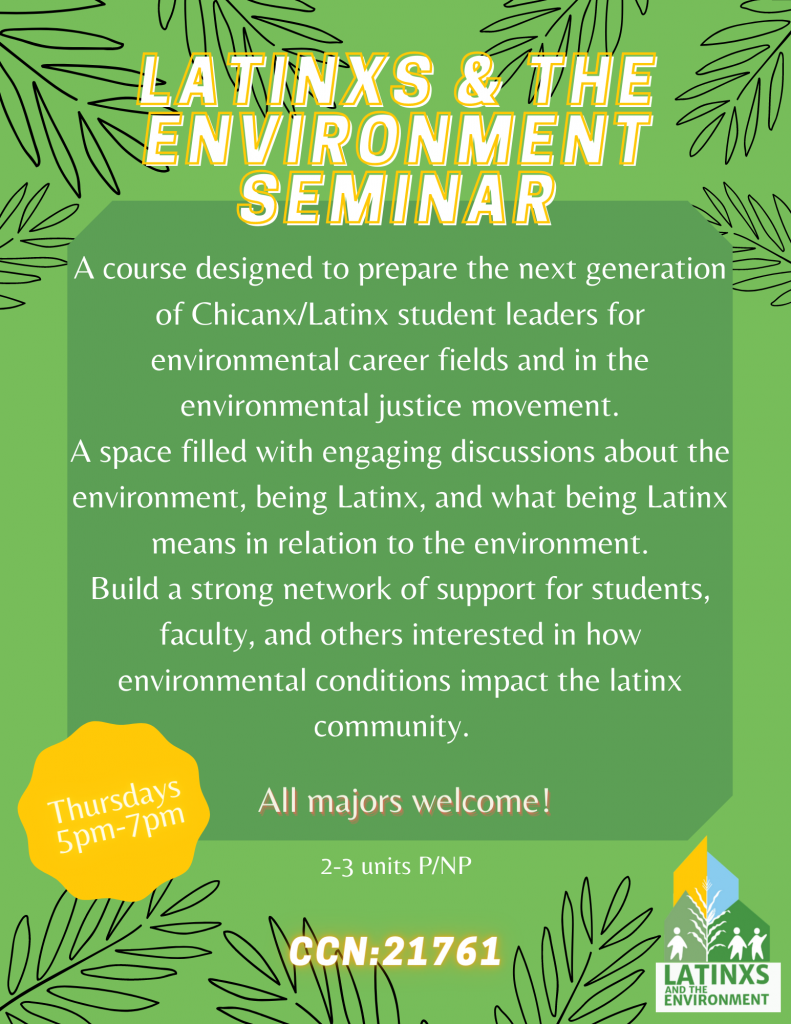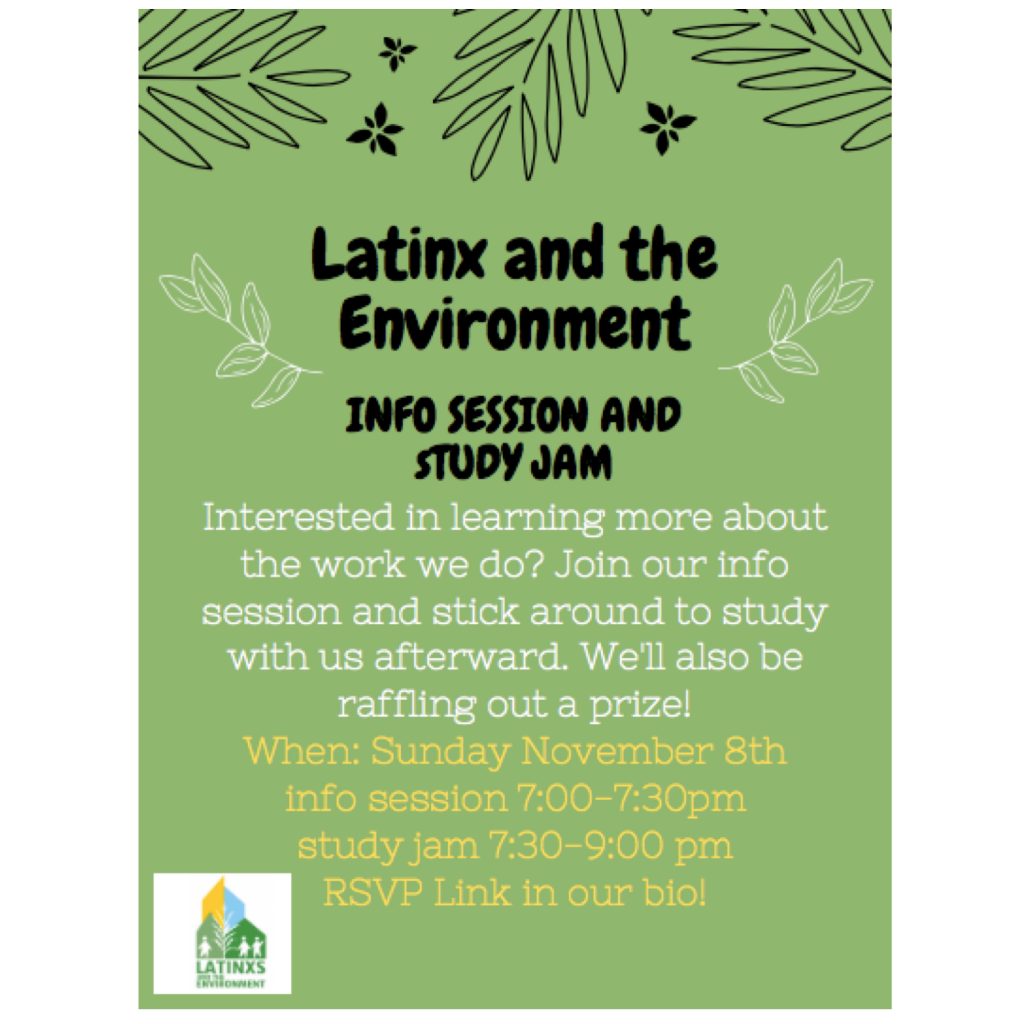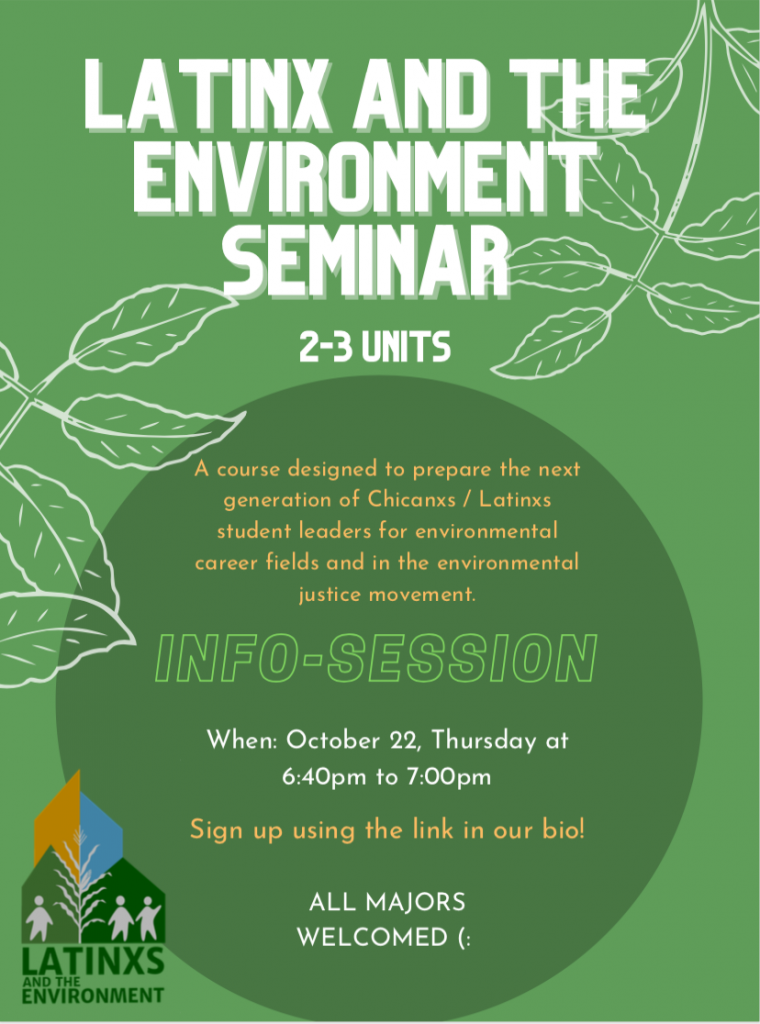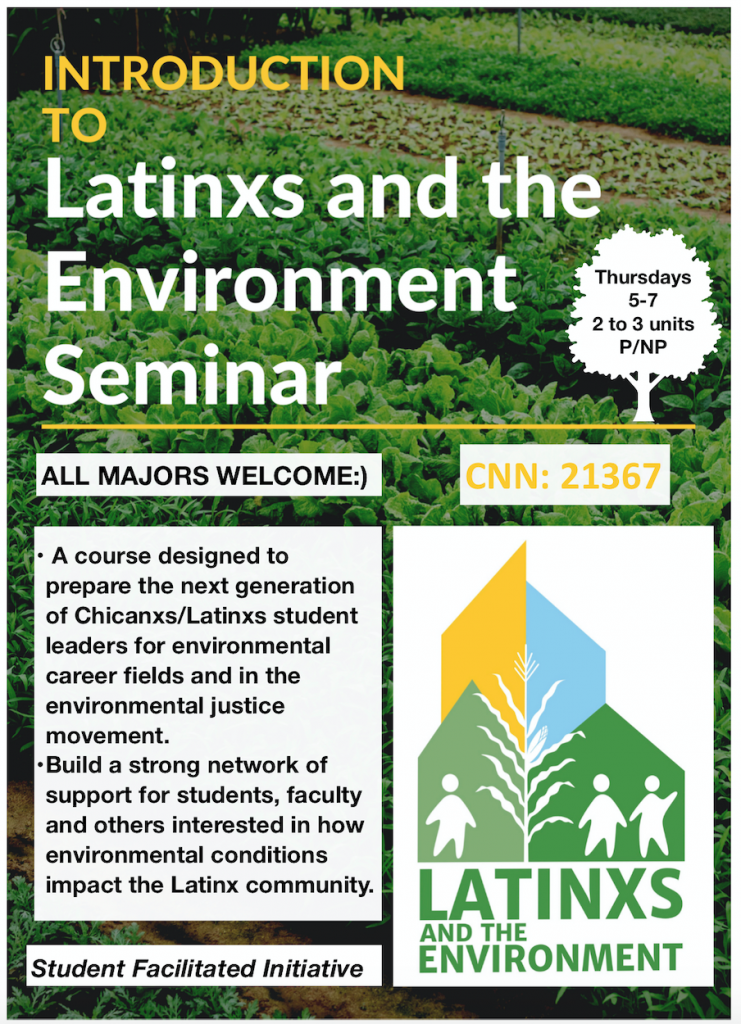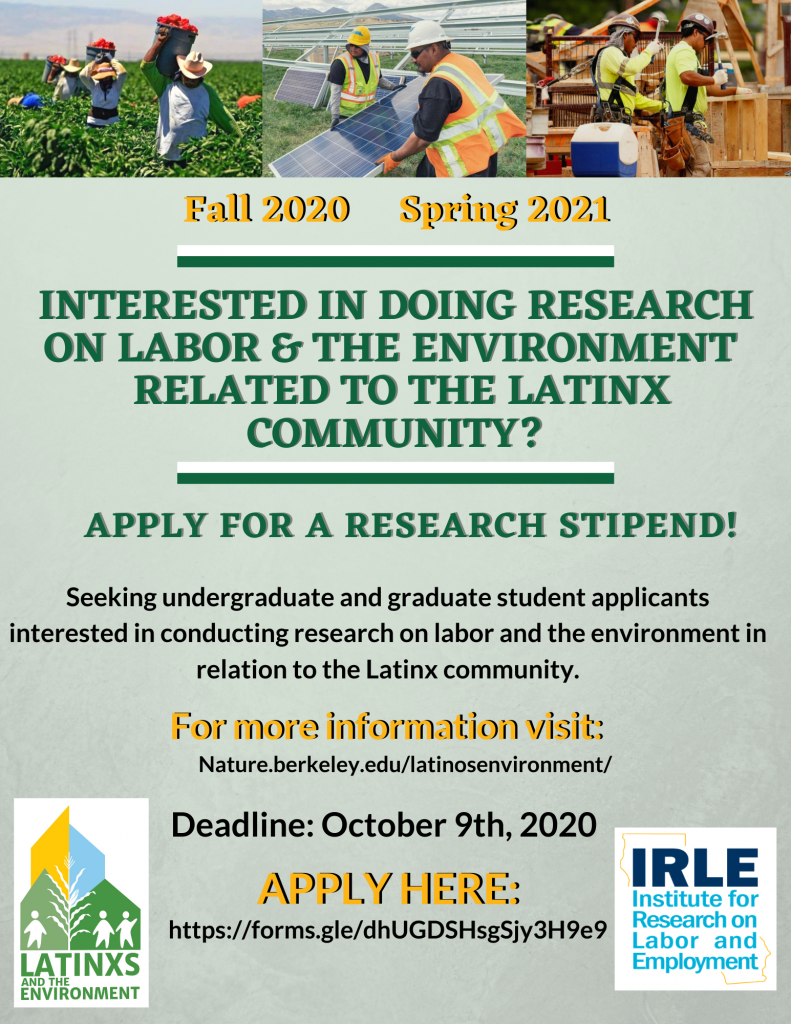L&E In Partnership with IRLE Offers Research Stipends for Fall 200 and Spring 2021
The Latinx and the Environment Initiative (LEI) and the Institute for Research on Labor and Employment
(IRLE) at CAL announce a NEW RESEARCH INTERNSHIP opportunity!
Funding is now available for five undergraduate and two graduate-level research stipends to perform research on issues related to labor and the environment. Selected students will be working with faculty, researchers, community-based organizations, policymakers, and other stakeholders in advancing quality research with potential policy impact. This opportunity can be used by students to work towards completing independent class research, honor thesis, fieldwork, dissertation work, and/or other academic goals.
Graduate students will receive $5K and are required to work with undergraduate students and serve as
mentors, providing academic and/or professional advice. This would require meeting on a regular basis
with students and in coordination with LEI and IRLE, motivate undergraduate students to complete their
proposed research project. Undergraduate students will receive $3K and, along with working on their respective projects are required to participate in regular meetings with their mentors, faculty, and others involved in their project.
To apply you would need:
a. A 300-400 word description of your project
b. A one page CV
Research can take the form of social media projects, research papers, preparation of posters,
conference presentations, etc. Selected students are also required to present their research findings in a conference hosted by LEI & IRLE to take place in May, 2021.
Applications are due October 9, 2020 by 11:59PM
APPLY HERE! https://forms.gle/dhUGDSHsgSjy3H9e9
